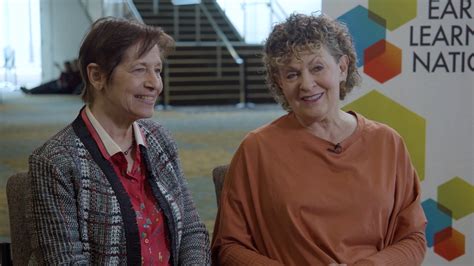A Quote by Sugata Mitra
Experiments show that children in unsupervised groups are capable of answering questions many years ahead of the material they're learning in school. In fact, they seem to enjoy the absence of adult supervision, and they are very confident of finding the right answer.
Related Quotes
Many years ago, in the late '70s, I toured colleges along the East Coast and I presented a kind of show where I got a lot of books and poetry and pieces of [William] Shakespeare and other writers that I admire, read it to the class and then afterward we would talk and I would answer questions. It was really a way of expressing and finding out about where I was at that particular time, so it was very therapeutic for me.
I'm sometimes asked why it is that for 30 years we seem to have trouble in the United States enforcing the rules against illegal immigration, and I'll tell you what the answer is. The answer is that when the television cameras turn off and the spotlight moves to something else, there are a host of interest groups and advocacy groups who work very, very hard to make it difficult to enforce these rules. I'm not commenting adversely on their motivation, but I can tell you the effect of all of this is to wear down the ability of an agency to enforce the law.
I'll always miss Mad Men, of course, but it is interesting to finally answer different questions after nine years. Not that that's a criticism to anyone, but just simply as a character for nine years, you're going to get a lot of the same questions for many, many, many years. This is sort of refreshing.
Each time I wander into blogdom, I'm reminded of the savage children stranded on an island in William Golding's "Lord of the Flies." Without adult supervision, they organize themselves into rival tribes, learn to hunt and kill, and eventually become murderous barbarians in the absence of a civilizing structure.
At school, when kids are being encouraged to get the one right answer and fill in that bubble, people can do things that enable their children to solve problems in multiple ways: "Can you think of different ways to make the bed?" It costs nothing, and the child is learning, "I have good ideas, I can be creative, and I can show you that I have confidence."
Toddlers ask many questions, and so do school children - until about grade three. By that time, many of them have learned an unfortunate fact, that in school, it can be more important for self-protection to hide one's ignorance about a subject than to learn more about it, regardless of one's curiosity.
In general, questions are fine; you can always seize upon the parts of them that interest you and concentrate on answering those. And one has to remember when answering questions that asking questions isn't easy either, and for someone who's quite shy to stand up in an audience to speak takes some courage.
A decline in supervision is not the entire story. Even in the fifties there were undersupervised children . . . who nevertheless did not become pregnant at thirteen . . . and who did not smoke anything stronger than an occasional Camel or Lucky Strike. . . . It took a combination of unsupervised children and a permissive, highly charged sexual atmosphere and an influx of easily acquired drugs and the wherewithal to buy them to bring about precocious experimentation by young and younger children. This occurred in the mid-seventies.




































